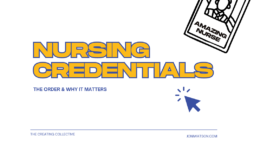The Article: Salz, T., Oeffinger, K., McCabe, M., Layne, T., & Bach, P. (2012). Survivorship care plans in research and practice. CA: A Cancer Journal for Clinicians, 62(2): 101-116.
Big Idea: Recommended by the Institutes of Medicine (IOM) and now incorporated into the Commission on Cancer (CoC) 2012 accreditation standards, survivorship care plans (SCPs) – which include comprehensive treatment summaries – are relatively new documents to even the most innovative cancer centers and programs. This study examines the 53 NCI-designated cancer centers’ development and use of SCPs for breast and colorectal cancer survivors. The authors also review the SCP literature as it relates to three key stakeholders – survivors, primary care providers (PCPs), and oncologists.
Survey Says!: Less than half of the 53 NCI-designated cancer centers provide SCPs to eligible breast or colorectal cancer survivors. The SCP documents themselves as well as the development and dissemination process to survivors and PCPs also varied widely among the institutions. In addition, nearly all SCPs omitted some of the SCP data pieces or guidelines originally recommended by the IOM in their 2005 report, From Cancer Patient to Cancer Survivor: Lost in Transition. SCPs rarely included information about practical effects of cancer such as legal issues, health insurance, and work concerns. The majority of SCPs also omitted discussion about the ongoing psychosocial impact of cancer during survivorship.
Survivors, PCPs, and oncologists all viewed the different pieces of the SCPs with varying importance, and while most agree the SCPs are important, still many struggle to find the adequate resources – personnel, finances, and time – to compile SCPs for survivors, which can take hours of development for each SCP.
Only one study has been conducted to date about the health outcomes of survivors (of early breast cancer) receiving SCPs compared to those who did not receive them. One year after receiving SCPs and coordinated care by a PCP, there were no differences in health outcomes for those breast cancer survivors who received SCPs compared to their control-group counterparts. (Please see third quote below.)
Quotable: “Survivors can use the SCP to learn about health-promoting behaviors, seek appropriate medical and psychological care, and learn about other relevant resources. The survivors can also share their SCP with their primary care provider to promote coordinated ongoing care” (p. 101).
“Experts may disagree or be undecided about specifics of SCP content, format, and delivery, but the general consesus is one of strong support even in the absence of firm evidence. Indeed, in the IOM report proposing the use of SCPs, its authors argue that because of the vast potential benefits of SCPs and the minimal harm, the development and dissemination of SCPs should proceed before waiting for a solid evidence base to be established [reference]” (p. 102).
In regards to the one study comparing health outcomes for survivors receiving SCPs: “A year after the intervention was delivered, there were no differences detected between groups on self-reported health outcomes, including cancer-specific distress, generalized distress, patient satisfaction, and general health status. Self-reported continuity of care and the identification of the primary care provider as the physician primarily responsible for follow-up also did not vary between groups” (p. 108).
So What?:If you work in oncology and have not heard about comprehensive treatment summaries or survivorship care plans, get ready. SCPs are a part of the new CoC accreditation standards, which means cancer centers and cancer programs throughout the U.S. will rapidly conform to maintain accreditation and must work through the barriers and processes to develop SCPs for cancer survivors. If you are involved in the process at all, you must read this article; it has so much valuable information about an innovation – SCPs – that we will adapt to for all cancer survivors very, very soon.
There are still many questions surrounding SCPs including how to generate them for all survivors, the forms to use, the length of the SCPs, when to give the SCPs to survivors, which long-term and late-effects guidelines are most appropriate, and how to use the SCPs in conjunction with PCPs. The authors also point out the IOM framework must be distilled and clarified to find the most essential pieces to include in every SCP for consistency and accuracy to benefit all.





